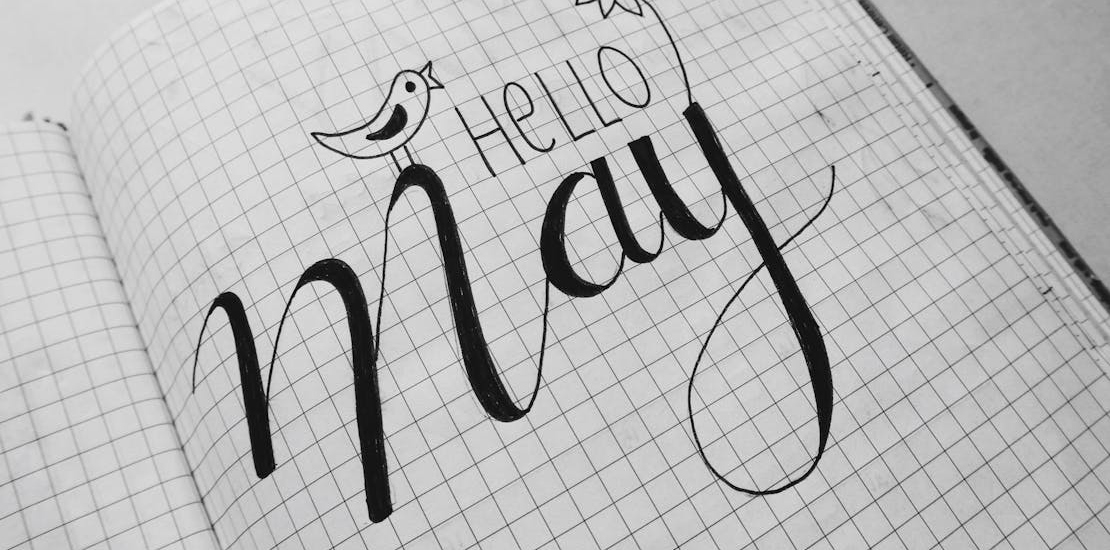May Is Mental Health Awareness Month: Let’s Talk About the Link Between Mental Health and Addiction

May is Mental Health Awareness Month, and it’s the perfect time to be reminded of the importance of caring for your mental well-being, reducing stigma, and encouraging people to seek support. It’s time to shed some light on less-addressed topics in mental health, like the connection between mental health and addiction issues. At the Tranquility Recovery Center, we see this connection every day. Many of our clients struggle with co-occurring health conditions, requiring special care and customized treatments.
To honor Mental Health Awareness Month, we will help you understand the link between mental health problems and substance use disorders, as well as how Tranquility Recovery Center can help you address both.

Understanding the Link Between Mental Health and Addiction
The connection between mental health problems and addiction issues is complex and requires understanding both conditions, as well as their mutual impact. When someone experiences these challenges at the same time, we refer to it as a co-occurring disorder or dual diagnosis.
What is Dual Diagnosis?
Dual diagnosis is more than just two mental health problems occurring at the same time. More importantly, they fuel each other or can even be considered causes of one another. This connection is therefore considered bidirectional.
- Untreated mental health issues can lead to substance use. Some of the symptoms of mental health problems are severe and difficult to manage or deal with. To escape their reality, some people with mental health issues might resort to seemingly quick fixes like substance use, as it brings immediate relief. However, if this is a recurring coping mechanism, it might turn into an addiction problem.
- Chronic and prolonged substance use can lead to changes in the brain chemistry, resulting in intense emotional instability and mental health problems. Furthermore, excessive use of certain substances can result in symptoms of mental health disorders even if they’re not fully developed. For instance, excessive use of alcohol and abrupt cessation of its consumption can result in hallucinations, typical of schizophrenia.
What are Typical Mental Health and Substance Use Pairings?
While there are no limitations in terms of possible combinations of mental health issues and substance use disorders, there are some pairings that are more common. At our dual diagnosis treatment center Los Angeles, we often see the following combination of problems:
- Depression and alcohol use disorder: Many people struggling with depression find a way to numb the pain by leaning into alcohol use.
- Anxiety disorder and benzodiazepine misuse: Anti-anxiety medications like Xanax and Ativan are often misused, especially when anxiety is severe.
- Post-traumatic stress disorder (PTSD) and opioid addiction: Trauma survivors may turn to drug abuse to calm their symptoms, but repeating this maladaptive coping mechanism can lead to an addiction problem.
Understanding the connection between mental health disorders and substance use disorders is essential for seeking proper support and treatments that can help you throughout your life. Mental health awareness is a key element of effective addiction treatment, and the month of May is here to remind us of it.

Why Mental Health Awareness Is Key to Effective Addiction Treatment
May is Mental Health Month, but your care for your mental health needs to be a lifelong one. Regardless of the problems you may be facing today, many mental health services can help you recover from challenges and grow.
Seeking mental health services like addiction rehab starts with mental health awareness. The reason behind it is the fact that addiction recovery is more than removing the use of substances from one’s life. Prescription drug detox Los Angeles patients attend, for instance, will often not be sufficient on its own. You will need to address the emotional pain that led you to use prescription drugs excessively. It is crucial to understand the underlying causes of substance misuse. Often, misdiagnosed or undiagnosed mental health conditions serve as the root causes.
True recovery will require whole person care, equally addressing your body, mind, and spirit. Among other reasons, this is why dual diagnosis treatment is critical.
A Comprehensive Approach for Lasting Results
Caring for your body, mind, and spirit will require a comprehensive approach that incorporates different treatments and lifestyle changes. The most effective treatments that can help you achieve this are
- Medications are sometimes necessary to treat both addiction (withdrawal symptoms in particular) and mental health disorders. Careful medication management can stabilize moods, ease anxiety, and support withdrawal, making it safe and comfortable.
- Psychotherapy, like CBT for addiction treatment, deals with the underlying causes of addiction, trying to determine if another mental health problem caused it. Irrational thoughts and beliefs are often at the core of any mental health issue. Cognitive behavioral therapy (CBT) aims to analyze them and reframe them to cause a positive change in your behavior and develop healthy coping mechanisms.
- Holistic approaches include practices like meditation, yoga, art therapy, and equine therapy. They also refer to lifestyle changes, including nutrition, exercise, good sleeping patterns, and engaging in hobbies.
Combining these approaches typically yields the best results. They ensure both short-term and long-term results and send you on a path of lifelong sobriety.

Destigmatization for Creating Opportunities
Oftentimes, people do not seek professional help out of fear of being shamed for facing a mental health challenge. The stigma surrounding mental health problems and especially addiction is still strong, preventing many from getting the support and help they need.
As May is Mental Health Awareness Month, it’s important to become aware of many obstacles people can face in seeking the treatments they need. You can be the change by offering a listening ear, helping a loved one get help, or seeking help yourself, paving the way for those coming after you.
How Tranquility Recovery Center Supports Mental Health in Recovery
We at Tranquility Recovery Center have always recognized that treating addiction requires treating related conditions and co-occurring disorders. Addressing only the symptoms of addiction is insufficient. Instead, we choose to address the whole person, which is why we offer integrated care for substance use and mental health.
Dual Diagnosis Treatment at Tranquility Recovery Center
Our dual diagnosis treatment has all the characteristics of other treatments that Tranquility Recovery Center provides.
- It is customized to address specific needs, challenges, and triggers each of our clients faces.
- It combines several approaches (like medication management, talk therapy, and holistic practices) to provide sustainable results.
- Professional and experienced staff are in charge of designing and carrying it out.
- It includes various forms of support, like group support and family therapy in addiction treatment.
- It can be fully or partially covered by Cigna insurance coverage for rehab.
Levels of Care at Tranquility Recovery Center
Understanding the differences in levels of support people need, Tranquility Recovery Center offers various services and levels of care.
- Inpatient detox is a typical first step for anyone struggling with substance use problems. It implies ceasing the use of alcohol or drugs within controlled conditions that ensure safety and comfort. Attempting to detoxify alone at home can be dangerous, but facilities offer the assistance and care you need to deal with withdrawal symptoms, regardless of how severe they are. Your condition will be monitored, and medical help will be provided if necessary.
- Residential treatment is a perfect solution for those who require more structure and intense support, especially early on in the recovery process. Residential or inpatient treatments imply that you stay overnight in a facility, allowing you quick access to any resources at the Tranquility Recovery Center. Like inpatient detox, it ensures quick medical assistance if needed, as well as isolation from the outside world, preventing relapse or accidental overdose.
- Outpatient care is a viable solution for those who require intensive support but need to maintain their daily routine. Outpatient drug rehab Los Angeles will ensure you get the necessary treatments and support while also taking care of your obligations and relationships. Outpatient care is also a good solution for those transitioning from residential treatment to an environment filled with potential triggers for use.
- Aftercare plans are another important aspect of mental health services that we at the Tranquility Recovery Center offer. We understand that remaining sober requires much effort and does not end with your rehab ending. This is why we design aftercare plans, considering your progress and circumstances. They can contain recommendations like joining support groups or continuing to attend psychotherapy sessions.

Safe and Supportive Environment at Tranquility Recovery Center
Healing from mental health problems and addiction issues requires more than supreme quality of mental health services. Tranquility Recovery Center offers genuine care on top of our top-notch comprehensive approach to healing. If you choose us as your mental health provider and a partner for better quality of life, you will get both expertise and unparalleled care. Our client-centric approach means more than tailoring solutions for you. It means accepting you as you are, showing no judgment, and ensuring you feel seen and understood.
We create a warm and welcoming atmosphere where you can let go of shame and begin to rediscover who you are. We will help you overcome your current struggles, but we will also empower you to take on any new challenge in the future and grow from your experiences. You will never feel alone. We will support you every step of the way.
Why Mental Health Awareness Month Matters
You shouldn’t only think about your mental health during crises or awareness days. If that’s the case, why is May Mental Health Awareness Month so important?
Because, like with physical health, we often don’t pay attention to mental health until there’s a problem with it. Furthermore, despite the widespread availability of information on mental health and its disorders, there is still a gap in knowledge, and there’s still much stigma. May is Mental Health Month, so we have a dedicated period during the year to highlight specific mental health and addiction problems and bring focus to groups that do not get much attention.
Mental health facilities and organizations contribute to awareness by organizing events, sharing knowledge, or, like in the case of SAMHSA, publishing yearly toolkits that can be helpful when providing support for a loved one. You can become a part of this movement by learning more about mental health disorders and addiction problems, as well as supporting your loved ones or your community when struggling with either of those.

You’re Not Alone — Reach Out Today
May Is Mental Health Awareness Month to remind us that recovery is possible — and no one has to do it alone. Your friends, family, community, and mental health professionals can guide you through difficult times and ensure you get all the support you need to overcome your current challenges. Choosing the right partner for your recovery journey also means you get to develop and grow.
Rely on Tranquility Recovery Center. Call us and get your customized treatment, tailored to your needs, circumstances, and preferences today, and let your mental health flourish.
You Have Questions
We Have Answers
At Tranquility Recovery Center, we offer treatment for a wide range of addictions, including alcohol, opioids, prescription drugs, and illicit substances. Our team tailors each program to meet individual needs, focusing on both the physical and emotional aspects of recovery.
At Tranquility Recovery Center, we offer treatment for a wide range of addictions, including alcohol, opioids, prescription drugs, and illicit substances. Our team tailors each program to meet individual needs, focusing on both the physical and emotional aspects of recovery.
At Tranquility Recovery Center, we offer treatment for a wide range of addictions, including alcohol, opioids, prescription drugs, and illicit substances. Our team tailors each program to meet individual needs, focusing on both the physical and emotional aspects of recovery.